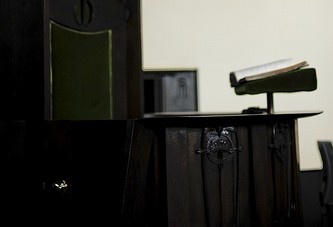Stump sermons
Beware when politicians sound like preachers and preachers start sounding like politicians—it’s likely that religion is being used for political ends. But some preachers are apparently eager to use religion for political purposes. For the fourth year in a row, a movement called Pulpit Freedom Sunday has encouraged pastors to back political candidates from the pulpit in a direct challenge to tax laws that prohibit churches from engaging in electoral politics. On October 7, 1,477 pastors took part in Pulpit Freedom Sunday. That’s a tiny percentage of pastors, but up from just 33 pastors who took part in 2008. (So far, the Internal Revenue Service has declined to pursue charges against any churches.)
When the church has nothing more to say than what could be said in a political stump speech, the church has surely lost its distinctive voice. It also has forgotten that people come to church wanting and needing something quite different from the campaign speeches and ads that they’ve been hearing all week.
The church cannot and should not attempt to isolate itself from its context—political, social or economic. It is called to seek the welfare of the society in which it finds itself and to seek the good of the whole world for which Jesus gave his life. And the outcome of elections matters—for the welfare of our society and, given the role the U.S. has around the globe, for the world. At its best, the church is a community of moral discernment in which the connection between discipleship and citizenship can be a matter for serious deliberation.





